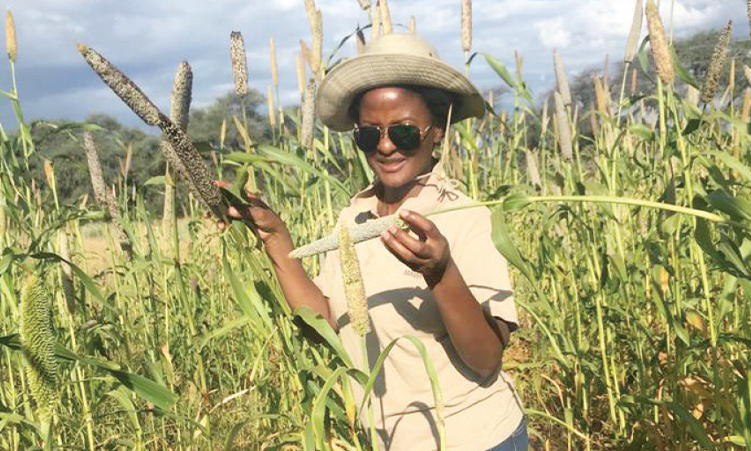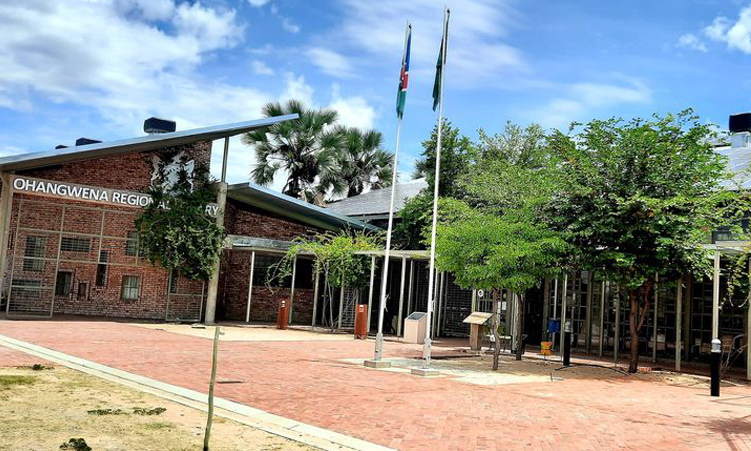Crop farmers, particularly those engaged in rain-fed agriculture, must get enough seeds now so that when the rains come they do not waste time running around looking for seeds, but start planting already.
This was said by Lydia Horn, the director of the Namibia Institute of Seeds (Nios), a local seed company that is dedicated to preserving traditional food seeds, to prevent them from extinction.
“By the time they run around, they might not find the seeds or they might get poor quality seed that might lead to poor harvests,” she said.
Nios was established in 2018 and is based at Rocky Crest in Windhoek, although the company has agents for its products in northern Namibia, the country’s top cropping regions.
The seeds are produced at the company’s farm in the Grootfontein area, and also by contract growers in the Kavango regions.
“They grow the seeds which we buy from them to supplement our own production.
However, we supply them the foundation seed to make sure we get the high quality seeds that we want,” said Horn.
She said the company aims to preserve Namibia’s traditional seeds for crops such as mahangu, sorghum, maize, cow peas, Bambara round nuts and all traditional squashes and gourds which are slowly disappearing.
“We are trying to preserve them and prevent them from disappearing. We contacted elders in the villages to get a few traditional seeds which we multiplied over the years.
“We then sell the seeds to people who want traditional foods and would keep some seeds for the next growing cycle,” she said.
Horn said the institute selects contract growers and trains them to grow the seeds, what pests to look out for, and visits them before they plant to advise on correct land preparation.
She said they also inspect crops before harvesting to ensure they had matured enough to produce seeds of high quality with a germination rate of 80% and above.
Horn said Nios markets its products to everyone including health conscious people who prefer organic food.
“We are also targeting people in rural areas who cannot afford hybrid seeds found on the market,” she said.
She said Nios seeds have been well received on the market by health conscious people who love growing their own food, as well as by non-governmental organisations who buy their seeds to support rural farming communities.
“We do not use chemicals and pesticides on our products because some people use this for food,” she said, adding that their products are GMO-free.
Horn, a qualified agriculturalist, is inspired by her upbringing in the crop growing Ohangwena region, her love for plants and her study of plant breeding, as well as the need to contribute to the country’s food security.
The crop scientist described plant breeding as a technique to develop new varieties of crops and to maintain them.
“A plant breeder develops new plant varieties through innovation to cope with prevailing situations like droughts and pests or to produce more grains,” she said.
“We cross-pollinate different varieties of the same crop, say mahangu, to create a new variety,” Horn said, who studied agriculture at the University of Namibia (Unam), earning a master’s degree in biodiversity before doing a PhD in plant breeding at the University of KwaZulu-Natal, becoming the first breeder in Namibia.
Besides the concurrent drought that affects the institute’s 1900-hectare farm, as well as contract growers, Horn said Nios faces challenges of equipment as they have to hire tractors for ploughing, seed grading equipment, as well as hiring seasonal weeding teams and seed packers.
She said Nios is working on developing potato varieties and has already come up with three varieties.
Besides work at the institute, Horn is involved in a crop development project for the agriculture ministry in conjunction with Unam and the University of the Orange Free State in South Africa. – email: matthew@namibian.com.na
Stay informed with The Namibian – your source for credible journalism. Get in-depth reporting and opinions for
only N$85 a month. Invest in journalism, invest in democracy –
Subscribe Now!






